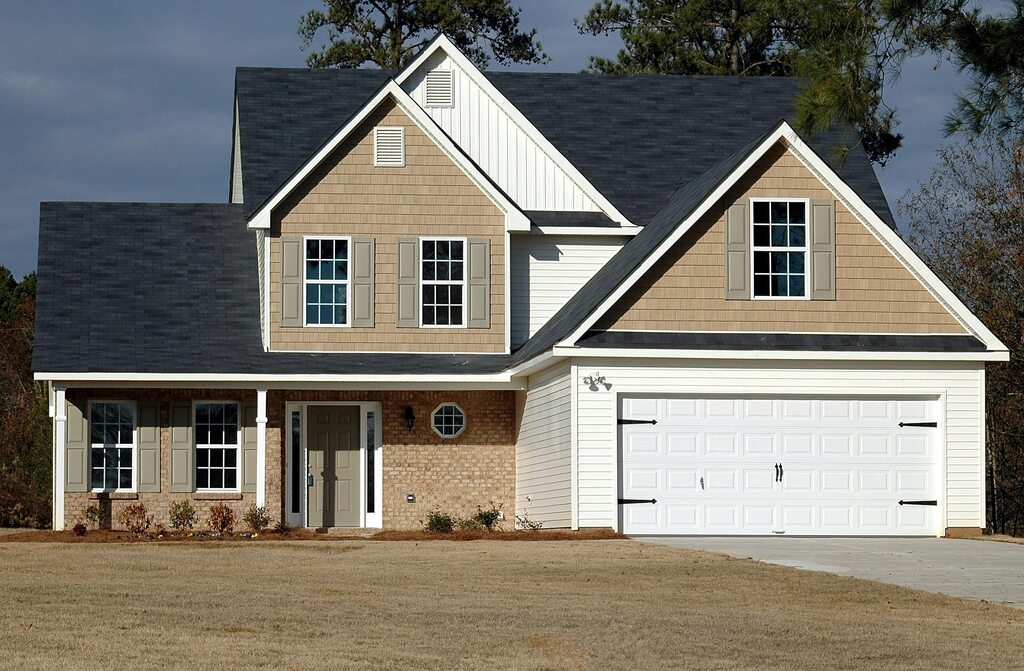
Deciding between an attached and detached garage can be challenging. Both options have their own unique benefits that can affect your daily life and home’s value. Our blog will break down the pros, cons, and key differences to help you choose the right type of garage for your home.
Table of Contents
Understanding Attached Garages
Dive into the world of attached garages, where convenience meets your home’s footprint. Explore how these structures offer direct access to your living space and weigh their benefits against potential downsides in terms of design and utility.
Basics of Attached Garages
Attached garages are part of your house. They share a wall with the main building, making it easy to get to your car or storage without going outside. You can enter through a door in this shared wall, often leading from the kitchen or laundry room. These garages keep you dry and warm when it rains or snows. They offer extra room for more than just cars. You might store tools, bikes, and lawn equipment in them.
Attached garages can be heated or cooled by connecting to your home’s HVAC system. This helps control the temperature and protects anything that can’t withstand extreme heat or cold. Some houses also have water heaters or air conditioning units installed here since they’re already close to needed wiring and pipes.
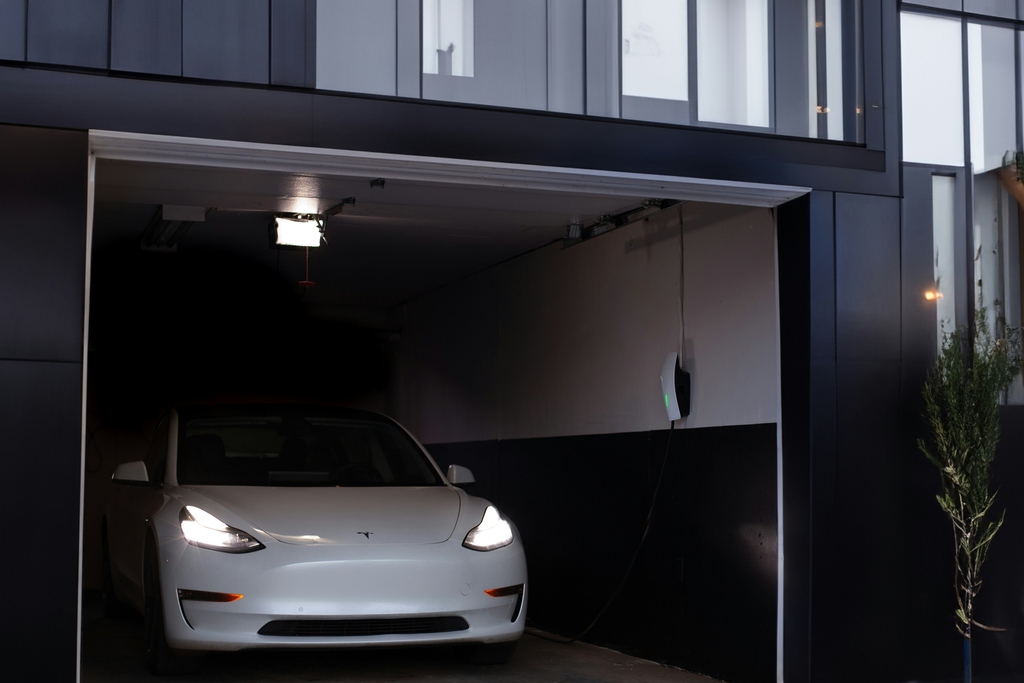
Pros and Cons of Attached Garages
Attached garages bring your car close to home. They make life easier, especially in bad weather.
Pros
- You can easily get to your car without going outside.
- Coming home feels safer because you enter through the garage.
- It is convenient when moving from your car to the house during bad weather.
- Your car stays warmer in winter and cooler in summer.
- Extra space for storage helps keep your home less cluttered.
- The value of your property may go up with an attached garage.
- Homeowners enjoy lower utility costs by sharing a wall with the house.
Cons
- There might be safety worries due to fumes entering the house.
- Noise from the garage door and vehicles can be heard inside.
- Getting building permits for expansions, such as improving your 2-car garage into a 3-car garage, is often challenging.
- If a fire starts in the garage, it could quickly spread to the house.
- Insurance rates may rise due to potential risks connected with attached garages.
Understanding Detached Garages
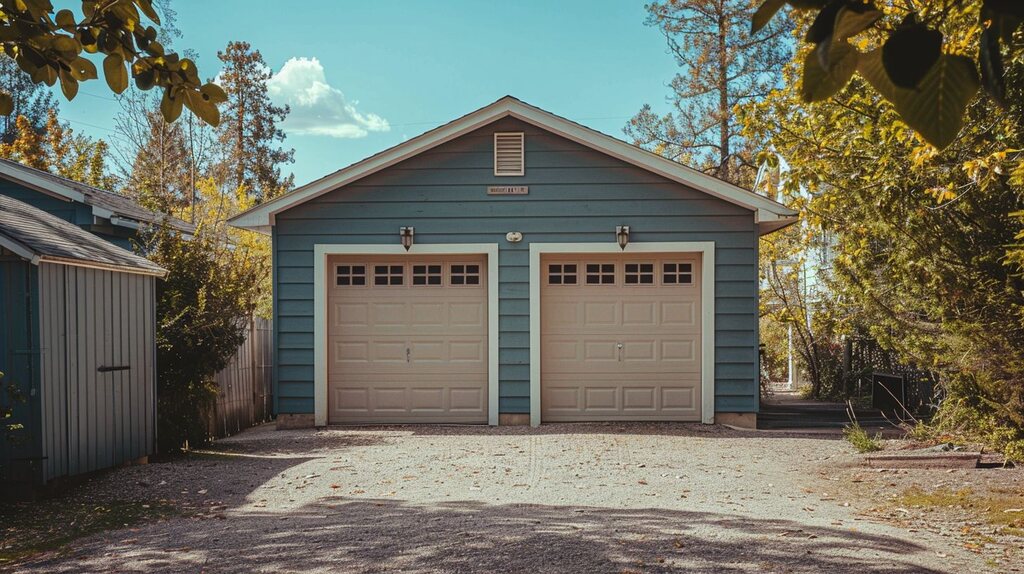
Detached garages stand apart from your main home, offering unique advantages and considerations for homeowners. Let’s explore what sets these structures aside and how they can shape your property experience.
Basics of Detached Garages
A detached garage stands alone, away from your house. This can mean a quieter home by separating car noises and workshop sounds. These structures also add to the curb appeal of your property as they often resemble tiny houses with similar design features like windows, doors, and sometimes even a deck. They’re great for those who want their garages to be more than just a place for cars.
Detached garages give homeowners the freedom to expand. If you decide later on that you need more space, for example, from a 30×30 metal garage to a larger size, it’s usually easier to enlarge or convert these garages than attached ones. They can become an apartment, office, or entertainment area without disturbing the main house structure. With this flexibility comes better potential for boosting your home’s resale value.
Pros and Cons of Detached Garages
Detached garages stand alone, separate from your home. They offer unique benefits and have some drawbacks compared to attached garages.
Receive Quotes from Multiple Barndominium Builders & Kit Providers Near You Today (It's Free!)
Fill in this 1-minute form below and receive estimates for your project without having to find them yourself! Let them do the work.
Pros
- More Flexibility: These garages can be built on different parts of your property. This is great for narrow lots where an attached garage wouldn’t fit.
- Expansion Potential: They often allow for more room to grow. You can add a second story or expand the space without affecting your house.
- Lower House Fire Risk: There’s less chance of a fire spreading to your home.
- Designer-friendly: They give you creative freedom. You can design them to match or complement your home without structural limits.
Cons
- Higher Cost: Home Advisor states that the cost to build a detached garage on average is $40 to $70 per square foot, around 10% to 15% more than the cost to build an attached garage.
- Takes Up Space: These structures eat into your yard area. Your homeowner association may even limit where you can build it.
- Less Convenient: Walking outside to the garage can be annoying in bad weather, especially when carrying groceries or other items.
- Security Concerns: Although they lower the risk of house fires, security might be a problem if they are not properly locked or lit at night.
Attached Vs. Detached Garage: Key Considerations
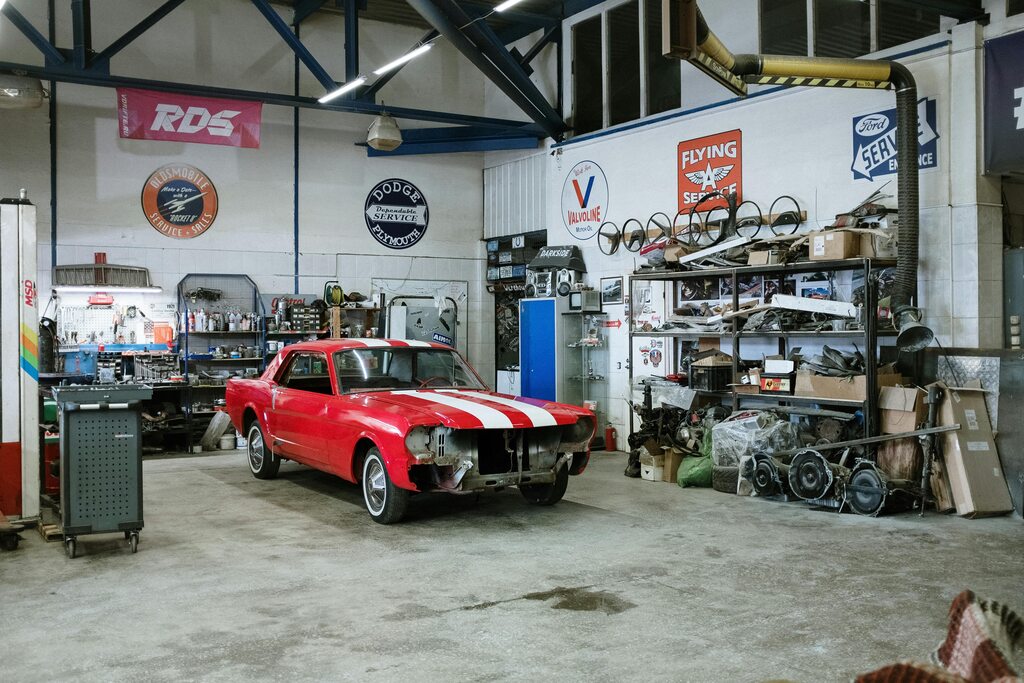
When deciding between an attached or detached garage, dive into crucial aspects that could significantly affect your lifestyle and finances. From how it impacts your wallet to everyday convenience, these considerations are pivotal in making a choice that aligns with your home needs.
Cost
Building an attached garage costs less than a detached one. According to Fixr, you might spend between $7,500 and $27,040 for an attached 2-car garage with space for storage and work. But if you go for a detached garage, prepare to pay more—from $58,430 up to $86,400 for the same size and features. Since it shares walls with your house, an attached garage needs fewer materials and labor, saving money.
Choosing an attached garage could also mean lower costs now and in the future. If you ever decide to expand or refinance your home mortgage, having an existing structure connected to your house can be less complicated. This choice also reduces construction time—a bonus if you’re eager to park your car inside or need extra space quickly.
Installation Process
The garage installation process can bring challenges. Putting up an attached garage could be tricky if you have a narrow lot. You might find yourself squeezed for space or struggling with building codes. On the other hand, detached garages often fit better on smaller properties and sometimes make getting permits easier. Setting up utilities in a detached garage comes with extra steps. You may need separate water and electricity lines for it. This means more digging and possibly hiring different contractors. Additionally, if your home is part of a homeowner association (HOA), check their rules first. They might have specific guidelines about where you can build and what it should look like.
Security and Insurance
Security is a big deal for homeowners. Attached garages have doors that lead right into your house. This setup can make it easier for burglars to slip inside unnoticed. You might need extra locks or alarms on those doors to keep your home safe. On the other hand, detached garages are stand-alone buildings. They don’t grant easy access to your living space if someone breaks in.
Insurance companies also pay attention to garage types. Your policy could change depending on whether you choose an attached or detached garage. Generally, insurance may cost more for an attached garage due to higher fire risks and safety concerns noted by insurers. Detached garages are often considered less risky since they’re away from the main house, which might lower your insurance bills over time.
Noise Levels
Besides considering the protection of your home, think about the noise. Attached garages share a wall with your house. This means you might hear hammers banging or saws buzzing if someone is working in the garage. If you like quiet, this could be a problem. Detached garages are different because they are stand-alone. You can do loud projects without worrying about bothering others inside the house. If peace and calm matter to you, a detached garage has an edge here.
Impact on Resale Value
According to Garage, having a garage can boost your home’s resale value. Whether attached or detached, a three-car garage might add about $30,000 to the price tag when you sell. For homes with a one-car garage, expect an increase of $15,000 to $20,000 in value. Buyers often look for homes with garages for extra storage and vehicle protection.
A good garage also makes your home stand out in the real estate market. It appeals to people who want climate control for their car or additional space like a fridge or workshop. In neighborhoods where parking is tight or alleyways are common, having that private spot can be a big selling point. These benefits can guide homeowners in deciding between an attached or detached model.
Making the Decision: Attached or Detached Garage?
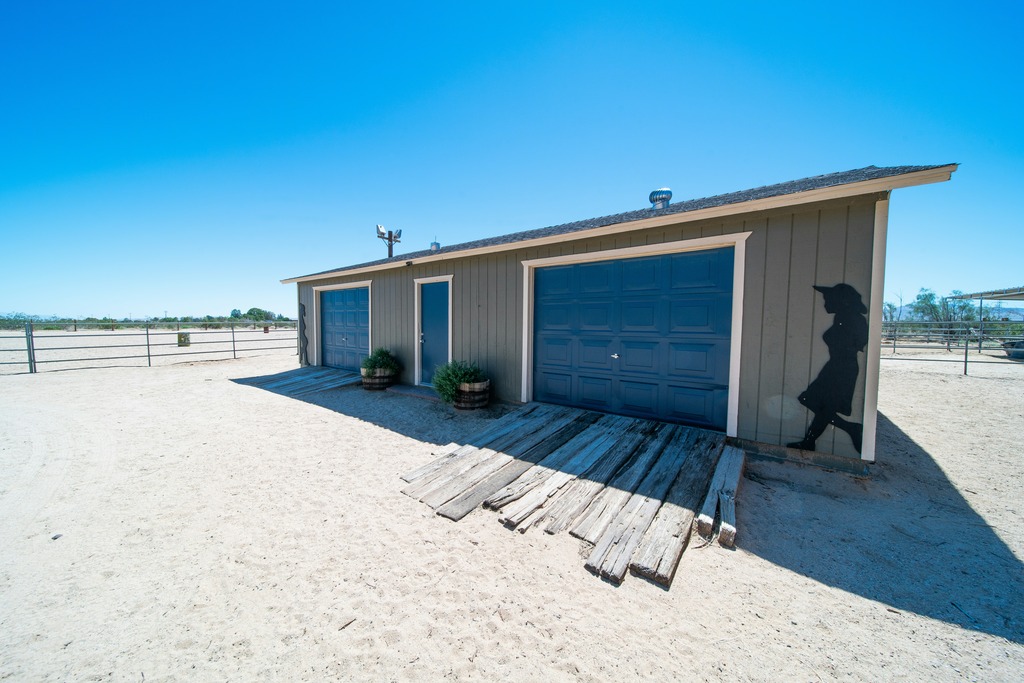
Consider your lifestyle and home layout before choosing a garage. Attached garages allow you to step into your house without facing the elements. This is very advantageous if you have small kids. But, they may limit how much you can change their size or location later.
Consider safety with detached garages. They stand apart from your house, so a fire there might spread less easily to living areas. Detached options can also be quieter, keeping car noise away from your home. This type could give more room for a workshop or storage if rules allow.
If saving money matters most, weigh the cost comparison carefully. Building an attached garage might be cheaper since it shares walls with the house. On the other hand, detached ones often need extra walkways and utilities, which increase the cost.
Don’t forget HOAs and local laws—they might affect what kind of garage you can build. Check these before deciding to avoid surprise fees or problems getting approval. Lastly, think about what will help sell your home down the line if that’s in your plan—garage choices can impact resale value differently depending on where you live.
Conclusion
Deciding between an attached and a detached garage is a significant choice. Think about what you need, like convenience or more space. Keep in mind how much money you’re ready to spend, too. Whatever you pick can improve your home and even boost its value. Choose the one that fits your life best! To explore additional information on more building options like barndominiums, pole barn garages, and shipping container homes, follow our Facebook Page.

